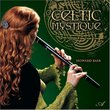| All Artists: Alison Stamp, Tallis Scholars Title: Allegri: Miserere Members Wishing: 0 Total Copies: 1 Label: Gimell UK Release Date: 4/10/2001 Album Type: Import, Original recording reissued Genres: Pop, Classical Styles: Vocal Pop, Opera & Classical Vocal, Chamber Music, Historical Periods, Baroque (c.1600-1750), Classical (c.1770-1830) Number of Discs: 1 SwapaCD Credits: 1 UPC: 755138133921 |
Search - Alison Stamp, Tallis Scholars :: Allegri: Miserere
 | Alison Stamp, Tallis Scholars Allegri: Miserere Genres: Pop, Classical
Here's a wonderful introduction to Renaissance choral music, with two tried-and-true repertory standards and the Mundy, a gorgeously sensuous example of a lesser-known mid-16th-century work, whose complex polyphonic strand... more » ![header=[] body=[This CD is available to be requested as disc only.]](/images/attributes/disc.png?v=5b450bfd) ![header=[] body=[This CD is available to be requested with the disc and back insert.]](/images/attributes/disc_back.png?v=5b450bfd) ![header=[] body=[This CD is available to be requested with the disc and front insert.]](/images/attributes/disc_front.png?v=5b450bfd) ![header=[] body=[This CD is available to be requested with the disc, front and back inserts.]](/images/attributes/disc_front_back.png?v=5b450bfd) |
CD DetailsSynopsis
Amazon.com Here's a wonderful introduction to Renaissance choral music, with two tried-and-true repertory standards and the Mundy, a gorgeously sensuous example of a lesser-known mid-16th-century work, whose complex polyphonic strands are rendered with compelling involvement by the Tallis Scholars. These performances were among the group's earliest recordings and helped catapult them into the forefront of specialists in this demanding repertoire. The Allegri became a favorite back in the 1970s, a sort of choral equivalent of Albinoni's Adagio, in which repetition serves as the driving force. The Tallis Scholars give it welcome variety through spatial placement in a large church and their colorful singing. Palestrina's Missa Papae Marcelli is one of that great composer's finest works. Its mastery of polyphony while clarifying the text is said to have convinced the Church to withhold its impending ban on polyphonic church music. The group sounds larger than its 21 members because of the acoustics, the clear diction of the Scholars, and the power of their singing, always transparent and involved. They use female sopranos instead of boys' voices, so there's more heft and color than we often hear from early-music groups. Vivid engineering makes the CD even more attractive. --Dan Davis Similarly Requested CDs
|
CD Reviews"It all begins..." quia-nihil-sum | Inverness,Scotland. | 04/13/2001 (5 out of 5 stars) "I'm quite sure there must be many people like me,who early on in their record collecting career,heard a brief excerpt of Allegri's "Miserere" over the radio perhaps,or on a film soundtrack,and exclaimed: "What is that !" and "why don't I own something that beautiful ?"; "Take me to it at once !!".In my case I rushed out to my local record shop (after carefully consulting my "bible" i.e "The Penguin Guide to Classical CDs") and was fortunate enough to find this lovely Tallis Scholars recording just waiting there for me.Now,there are some excellent "Misereres" available elsewhere,with brilliant boy soloists soaring magically up to those spine-tingling high Cs,but this recording is something apart and special.For a start,it is a girl (the excellent Alison Stamp) who has the solo limelight,and also Peter Philips,the director,had the brilliant notion of seperating the solo group of the choir,and placing them at the far end of Merton College Chapel.Not only does this fully exploit the fantastic acoustics of the building,but it creates the marvellous effect of making the piece come across almost as a dialogue between Heaven and Earth.It's a truly otherworldly listening experience,and should not be missed by anyone who claims to love music.William Mundy's "Vox Patris Caelestis" (The Voice of the heavenly Father) is a celebration of the Assumption of the Blessed Virgin Mary,and borrows heavily from the Song of Solomon.Perhaps at first you might think it doesn't quite have the appeal of the other two items on this disc,but it does repay repeated listening,and with the barely reined in passion of it's final verse provides a most satisfying sonic bridge between the more subdued beauties of the other masterworks.The well considered interval of silence after the impressive "Amen" of "Vox Patris..." only serves to heighten the eager anticipation you should rightly feel before the commencement of Palestrina's outstandingly beautiful "Missa Papae Marcelli".I won't burden you now with an Academic dissertation (I'm ill-qualified to do so anyway) on it's genesis and provenance.Instead I'll just baldly (and boldly) state that if you are entirely new to polyphonic settings of the Mass,then this is the loveliest launchpad possible for you to soar Heavenwards on a fantastic voyage of discovery.From it's oh,so sublime "Kyrie",to the absolute raptures of it's "Sanctus" and two part "Agnus Dei",it reminds me of nothing so much as a glorious musical galleon sailing across a barely ruffled ocean towards a blissful horizon of peace via the concluding "dona nobis pacem".Quite,quite astonishing that such paradisiacal sounds can be produced by such a small group of men and women -- and not an instument (apart from their vocal cords) to be seen !So,waste not a second more of your life,if you have any regard at all for your harmonic health,in snapping up this wonderful CD.Your personal countdown has started;so step aboard,join me,and we'll ply the seraphic seas of polyphony together." Stunning FrKurt Messick | Bloomington, IN USA | 07/24/2003 (5 out of 5 stars) "--Allegri's Miserere-- Part of the power of the Miserere lies in its basic simplicity, which is one of the fundamental building blocks of spirituality. Indeed, legend has it that the Pope once decreed that it could only be performed at the Vatican, and only under conditions of special care due to its spiritual power. Legend continues that this monopoly was broken when Mozart (as a child) heard the piece and, from one hearing only, transcribed the music into print form and distributed it from there. Perhaps this is an embellishment, but it is a romantic story befitting the piece. The Miserere is based on Psalm 51 (Allegri's setting is but one of many), the great penitential psalm of the Lenten season. This sombre and searching spirituality permeates the music from start to finish. The high piercing notes recalling the piercing guilt and the pierced Christ cry over the mixture of voices that produce a most exquisite grumble of humanity in search of God.--Palestrina's Missa Papae Marcelli- Written at least a generation prior to Allegri's Miserere, Palestrina's Mass for Pope Marcellus II is likewise a composition in search of the absolute and absolving God. Reacting to an overly ornate liturgy of the Roman Catholic church in the face of popular and growing Reformation types, Palestrina became a great champion for music that preserved both the grandeur of the liturgy as well as the accessibility of the message and language for the people. The lower vocals make the Mass a part of the people, rather than existing on high, inaccessible.--William Mundy's Vox Patris caelestis- Mundy's work is roughly contemporary with that of Palestrina (mid to late 1500s). The Vox Patris caelestis (the voice of the heavenly Father) is a decidedly Catholic English composition, which places it during the reign of Mary. Mundy was in many ways opposite from Palestrina - clarity of words and simplicity of music were secondary concerns, if concerns at all. All of these pieces are glorious polyphonic compositions of extraordinary power and grace. Taken as a set, they make a wonderful snapshot of Roman Catholic/high Anglican sensibility from the time of religious upheaval due to the Reformation.--The Tallis Scholars- The Tallis Scholars are a group dedicated to the performance and preservation of the best of this type of music. A choral group of exceptional ability, I have been privileged to see them many times in public, and at almost every performance, the Miserere by Allegri is expected and delivered with near-flawless grace. Directed by Peter Phillips, the group consists of a small number of male and female singers who have trained themselves well to their task.This recording deserves more than five stars; it deserves a place on the shelf of anyone who loves choral music, liturgical music or Gregorian chant, classical music generally, or religious music. When listening, fair warning: prepare to be moved." THE WHAT WHAT? NotATameLion | Michigan | 10/21/2004 (4 out of 5 stars) "OK...so I am no expert at classical music; and apparently, I know next to nothing about this particular sub-genre of it. But it sure sounds purty.
Actually, I have more than a passing knowledge of polyphony, but all that technical crap falls like scales from my eyes (and ears) in the presence of this soaring music. The Miserere--there are other great pieces here, but trust me, you're buying this disc for the Miserere--is a Latin setting of David's Psalm 51. Psalm 51--which in The Message (a "translation" that I usually like, but it kind of falls short when it comes to plumbing the depth of David's sorrow in Psalm 51) begins like this: "Generous in love--God, give grace! Huge in mercy--wipe out my bad record. Scrub away my guilt, soak out my sins in your laundry. I know how bad I've been; my sins are staring me down." (I've always said the Message can be a little too hyphen-tastic and a little too cutesy. Cases in point: the first two lines and then "soak out my sins in your laundry." But I digress from a digression here). The main point is that this is extremely beautiful music--music (to use a few more hyphens of me own) inspired by one of the most beautiful Psalms (read it in the ESV for instance). David wrote Psalm 51 following Nathan's confrontation of him about his sin with Bathsheba. As a result of David's sin, his newborn child died. David turned with a full heart to his God. The Miserere (Psalm 51) is the heart cry of one king to Another. The mortal king asks the Heavenly One for what only God can give--forgiveness of sin and a new, clean heart. Reading some of the excellent reviews below told me just how little I know about this music technically. To tell you the truth, a lot of that stuff is over my head and beyond my concern. I know, for instance, that some folks don't care for the Tallis Scholars using female voices in these pieces. That doesn't really matter to me one way or the other. I am blown away by the beauty of all these pieces--the Miserere being foremost among them. I give this disc my full recommendation." |

 Track Listings (7) - Disc #1
Track Listings (7) - Disc #1








